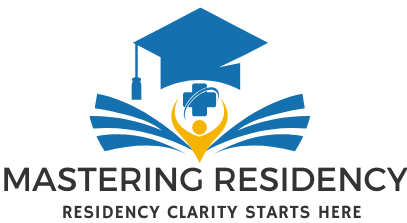How Residency Programs Rank Applicants
Securing a residency position is a pivotal milestone for medical graduates, marking the transition from academic studies to hands-on clinical training. The competition is intense, with numerous candidates vying for limited spots across various specialties. Understanding how residency programs evaluate and rank applicants is crucial for those aiming to enhance their chances of matching successfully.
Key Factors in Applicant Evaluation
Residency programs employ a comprehensive approach when assessing candidates, considering multiple facets of an applicant's profile:
United States Medical Licensing Examination (USMLE) Scores: Performance on Step 1 and Step 2 Clinical Knowledge (CK) exams serves as a standardized metric of medical knowledge. According to the 2021 National Resident Matching Program (NRMP) Program Director Survey, 86% of program directors cited USMLE Step 1 scores as a significant factor in interview selection.
Clinical Performance: Grades from core clerkships and clinical rotations reflect an applicant's practical skills and patient care abilities. The same NRMP survey indicated that 84% of program directors consider grades in required clerkships when making interview decisions.
Letters of Recommendation: Endorsements from faculty and attending physicians provide insights into an applicant's competencies and professional demeanor. Strong letters, especially from within the desired specialty, can significantly bolster an application. AAMC
Personal Statement: This narrative offers applicants a platform to articulate their motivations, career goals, and suitability for the specialty. A compelling personal statement can distinguish an applicant in a competitive pool. NRMP
Research Experience: Engagement in scholarly activities demonstrates a commitment to advancing medical knowledge and can be particularly influential in academic-oriented programs.
Interviews: Often the most critical component, interviews allow programs to assess interpersonal skills, professionalism, and cultural fit. The 2021 NRMP survey highlighted that 94% of program directors consider interactions with faculty during interviews and visit days as essential factors in ranking decisions.
Specialty-Specific Variations
Evaluation criteria can vary notably between specialties:
Surgical Specialties: Programs may prioritize technical skills, dexterity, and the ability to perform under pressure. Research experience in surgical fields and strong letters from surgeons are often highly valued.
Internal Medicine: Emphasis might be placed on clinical reasoning, patient management skills, and a holistic approach to patient care. Long-term commitment to internal medicine through electives and related research can enhance an applicant's profile.
Holistic Review and Diversity Initiatives
Many programs are adopting holistic review processes, evaluating candidates beyond academic metrics to include experiences and personal attributes. The Association of American Medical Colleges (AAMC) defines holistic review as giving balanced consideration to an applicant's experiences, attributes, and academic metrics to determine their potential contributions to the institution's mission. This approach supports diversity and inclusion, recognizing that varied backgrounds and perspectives enrich the medical profession and improve patient care outcomes.
The Impact of Interview Preparedness
Interviews are a decisive factor in the ranking process. Program directors can readily discern when candidates are unprepared, reading scripted responses, or lacking genuine engagement. Such behaviors can adversely affect perceptions and diminish an applicant's ranking. Authenticity, thorough preparation, and the ability to articulate one's experiences and aspirations thoughtfully are imperative during interviews.
Maximizing Ranking Potential: Practical Advice
To enhance prospects in the residency matching process:
Excel Academically: Aim for strong performance in both preclinical and clinical years, as academic excellence remains a cornerstone of evaluation.
Secure Strong Recommendations: Cultivate meaningful relationships with mentors and supervisors who can provide personalized and robust letters of recommendation.
Craft a Compelling Personal Statement: Reflect deeply on your motivations and experiences, conveying a clear narrative that aligns with your chosen specialty.
Engage in Relevant Research: Participate in scholarly projects, particularly those pertinent to your desired field, to demonstrate commitment and intellectual curiosity.
Prepare Thoroughly for Interviews: Practice articulating your experiences and viewpoints clearly. Be genuine, maintain eye contact, and avoid overly rehearsed answers to foster a natural and engaging dialogue.
Understanding the multifaceted criteria residency programs use to rank applicants enables candidates to strategically enhance their applications. By focusing on academic excellence, meaningful experiences, and authentic interactions, applicants can position themselves favorably in this competitive process.
